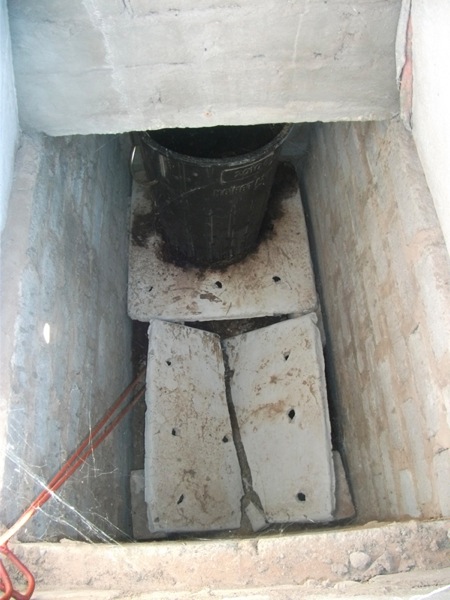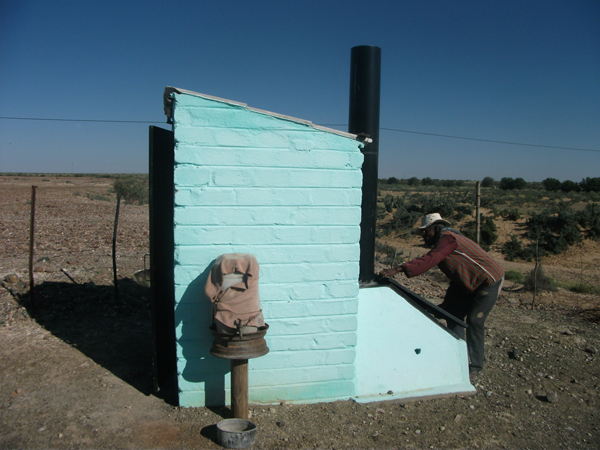A five day physical inspection and assessment of 17 Otji-toilets installed during the first year of the E-CAP project was carried out in Grundorn South and Nico Noord, using a questionnaire including a sketch of the structure of the Otji-toilet.
The inspection of the 17 dry sanitation systems revealed that most toilets were in good condition with slight or no smell and were kept clean by the owners. However, a common problem is the cracking of the drying plate on which the collection drums stand. According to the users of the toilets the drying plate cracks when the full drum is switched with the empty drum. Of eleven toilets in Grundorn South, four if the eleven toilets had a broken drying plate in the middle or on one corner of the plate, while in Nico Noord two of the six toilets had broken drying plates.

Figure1: A broken drying plate in an Otji-toilet in Grundorn South
Four toilets in Grundorn South had filled up one of the two collection drums and changed to the empty one after seven months of usage, while the others were changed during the inspection (after about 12 months of usage), resulting in two drying plates braking. None of the users have emptied any waste from the toilets as the waste is still drying.
Three of the toilets in Nico Noord have been changed. One of the households has used the waste as compost for their onion and tomato garden. The human waste was mixed with animal waste before adding it to the soil.
Only one household (one toilet) has constructed a hand washing facility on the toilet which is made out of a 25 litre container turned upside down with a tap. This container can last up to a month before refilling it for the use of the whole family.

Figure 2: The hand washing facility built by the user of an Otji-toilet in Grundorn South
The lessons learnt from the assessments of the Otji-toilets installed in Grundorn South and Nico Noord will now be compiled into a report and presented to relevant stakeholders like the Directorate of Water Supply and Sanitation Coordination (DWSSC) and regional councils. The team will also continue the discussions with the community representatives regarding hygiene and sanitation and the development of hand washing facilities for each of the toilets installed at the two sites.




































